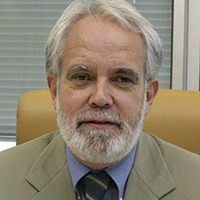"Bisogna che tutto cambi! - Everything has to change!", by Armando Mariante
- 08 july 2025
The urgency of Civilizational Renewal
The foundational principle of the separation and independence of powers—together with the classical system of checks and balances—was articulated by two 17th-century philosophers, John Locke and Montesquieu. Though neither were political practitioners, their contributions laid essential groundwork for modern democratic theory. Both thinkers, in turn, drew inspiration from Aristotle, who lived nearly two millennia earlier. Civilization thus owes a considerable intellectual debt to the insights of these three philosophers, whose ideas remain central to the architecture of democratic governance.
The conceptual and institutional foundations of democracy represent some of the most noble and ambitious achievements of human civilization. However, as these constructs are not scientific in nature—much less exact—the evolution of democratic systems has often been uneven and fraught with tension.
As Winston Churchill famously observed, democracy is the worst form of government—except for all the others.
Today, however, democratic governments appear increasingly inefficient and dysfunctional. They operate as sluggish systems, slow to respond to urgent societal needs and anxieties. The costs of ensuring governability are high, while the returns in terms of institutional performance and responsiveness remain disappointingly low.
We are presently living through a period of profound rupture and systemic discontinuity, marked by at least three unprecedented challenges:
-
Democratic Erosion and Political Paralysis: Contemporary capitalist democracies are struggling to meet the complex and often confused expectations of their populations. Popular disillusionment with politicians and political institutions reflects a deep crisis of legitimacy and capacity.
-
Degradation of the biosphere: Incalculable damage has been done to the biosphere over the past fifty years, and current efforts to reverse or mitigate environmental collapse have proven insufficient and inconsistent.
-
Technological Concentration of Power: The rise of trillion-dollar technology conglomerates has introduced a new kind of asymmetrical power, unprecedented in scale and influence. These corporations are shaping human cognition, cultural norms, and the educational development of future generations, often with minimal accountability.
These crises are further exacerbated by the chaotic, polluted, and polarized environment of contemporary social media—now amplified by the pervasive use of artificial intelligence technologies. The result is a communicative landscape that undermines collective reasoning, intensifies division, and weakens democratic discourse.
Both conservative and progressive forces within democratic societies appear fatigued. Post-war Western generations were raised in relative stability and often take for granted the resilience and normative superiority of democratic governance. Yet democracy is not inherently durable. It is not the default condition of civilization, but rather a fragile and contingent achievement. There is growing concern that the current generation—largely untouched by the direct traumas of war or authoritarian repression—undervalues freedom and may only come to recognize its worth once it is lost.
Can civilization confront and overcome these three existential challenges in time? Is there still a window of opportunity for transformative and effective action?
Today, multiple specters haunt the global order. Unless proponents of democratic and civilizational values succeed in forging new, ambitious, and often unlikely alliances—an endeavor fraught with difficulty—we risk forfeiting the privileges that have historically allowed us to inhabit the planet in relative comfort and peace.
The rule of thumb of risk diversification that tells us not to put all the eggs in the same basket doesn’t apply to our planet. It is our only basket. Our risk is inexorably and totally concentrated in it. We have no diversification alternative.
In Il Gattopardo (The Leopard), Giuseppe Tomasi di Lampedusa’s character Tancredi offers a prescient observation to his uncle:
“Se vogliamo che tutto rimanga come è, bisogna che tutto cambi.”
“If we want everything to stay as it is, everything must change.”
We ought to enact profound change—not merely to progress, but to preserve the viability of civilization and the sustainability of our shared planetary home.
The opinions expressed in this publication are those of the author. They do not purport to reflect the opinions or views of the Brazilian Center for International Relations (CEBRI) or its partner organizations, along with its members and supporters.
Authors

